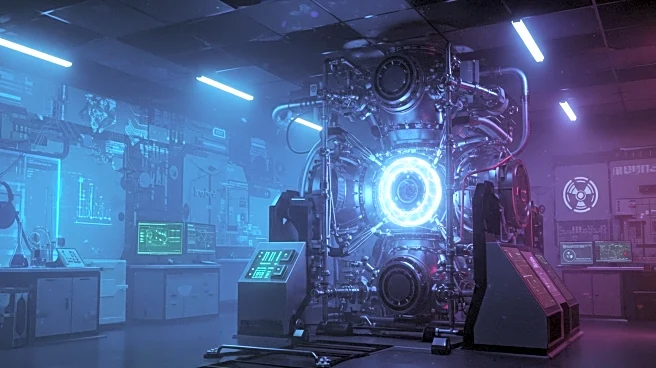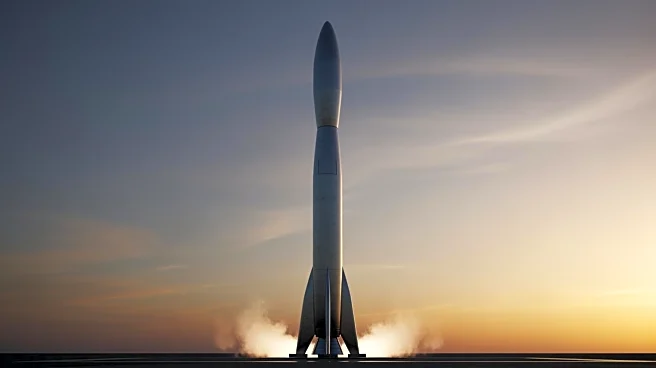What's Happening?
Researchers at the University of British Columbia have developed a bench-top-sized particle accelerator, known as the Thunderbird Reactor, to enhance nuclear fusion rates. This reactor uses a combination of plasma immersion ion implantation and electrochemical loading to increase deuterium-deuterium fusion rates by 15%. The process involves loading a palladium metal target with deuterium fuel using both a plasma field and an electrochemical cell. This method, while not achieving net energy gain, represents a significant step in making nuclear fusion more accessible for research outside of large national labs.
Why It's Important?
The development of the Thunderbird Reactor is significant as it offers a new approach to nuclear fusion, a process that could potentially provide a powerful and cleaner energy source compared to nuclear fission. By making fusion research more accessible, this innovation could accelerate advancements in clean energy technology. The ability to systematically tune fuel-loading methods and target materials could lead to breakthroughs in achieving sustainable and efficient fusion energy, which is crucial for addressing global energy demands and reducing reliance on fossil fuels.
What's Next?
The research team hopes that their work will inspire further exploration and refinement of nuclear fusion techniques. By inviting the scientific community to build upon their findings, there is potential for significant advancements in fusion technology. Future research may focus on achieving net energy gain and improving the efficiency of the fusion process, which could eventually lead to practical applications in energy production.
Beyond the Headlines
This development also highlights the interdisciplinary nature of modern scientific research, combining nuclear fusion, materials science, and electrochemistry. The collaborative approach taken by the researchers, supported by the Thistledown Foundation, underscores the importance of cross-disciplinary efforts in tackling complex scientific challenges.









